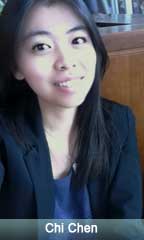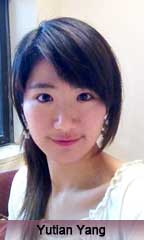NASCAR Internship Puts Jenna Mazza L’26 on the Right Track to Career in Sports Law
A lifelong NASCAR fan, Jenna Mazza L’26 has a photo of herself at age 4 standing with legendary driver Jimmie Johnson’s diecast car. So, imagine her elation when she had the opportunity to take a photograph with Johnson himself this…


 Chen agrees that the debates help people get to know the candidates in a direct way, by addressing the most concerning problems and issues. “In this way, people not only get to know their solutions and thoughts, but also get to know them better based on their confidence, or probable personalities,” says Chen, who is from Wuhan. “Another thing I found very interesting about this is the debate can be very intense and exciting to see how they react and counterpoint in a sophisticated way.”
Chen agrees that the debates help people get to know the candidates in a direct way, by addressing the most concerning problems and issues. “In this way, people not only get to know their solutions and thoughts, but also get to know them better based on their confidence, or probable personalities,” says Chen, who is from Wuhan. “Another thing I found very interesting about this is the debate can be very intense and exciting to see how they react and counterpoint in a sophisticated way.” Yang has noticed the intensity of the campaign has increased as it gets closer to the election—and the results are not certain, unlike in China. “The thing is here you are having a real election, but we don’t really have one,” Yang says. “All media is talking about how the next leader in China will do, like it’s already known, but officially, it should still remain uncertain.”
Yang has noticed the intensity of the campaign has increased as it gets closer to the election—and the results are not certain, unlike in China. “The thing is here you are having a real election, but we don’t really have one,” Yang says. “All media is talking about how the next leader in China will do, like it’s already known, but officially, it should still remain uncertain.”